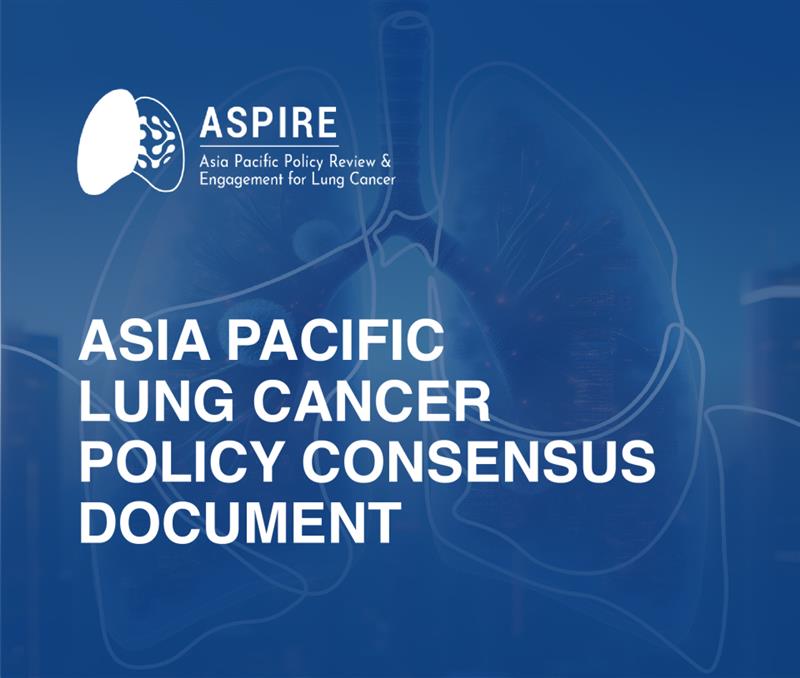
The APAC Lung Cancer Policy Consensus is a pioneering, regionally led initiative developed by ASPIRE for Lung Cancer and Asia Pacific Coalition for Lung Cancer (APCLC). Developed in close collaboration with a diverse group of 43 contributors, including clinicians, academics, patient advocates, and healthcare organisations, this effort spans 14 APAC health systems.
At the heart of the Consensus are five key principles, tailored to APAC’s unique healthcare realities
This consensus serves to drive meaningful progress across the entire lung cancer care continuum in the region and represents a bold, united call for change.
It is a regional rallying point designed to empower policymakers, health leaders, and advocates to close the care gap and improve outcomes for lung cancer patients in Asia Pacific.
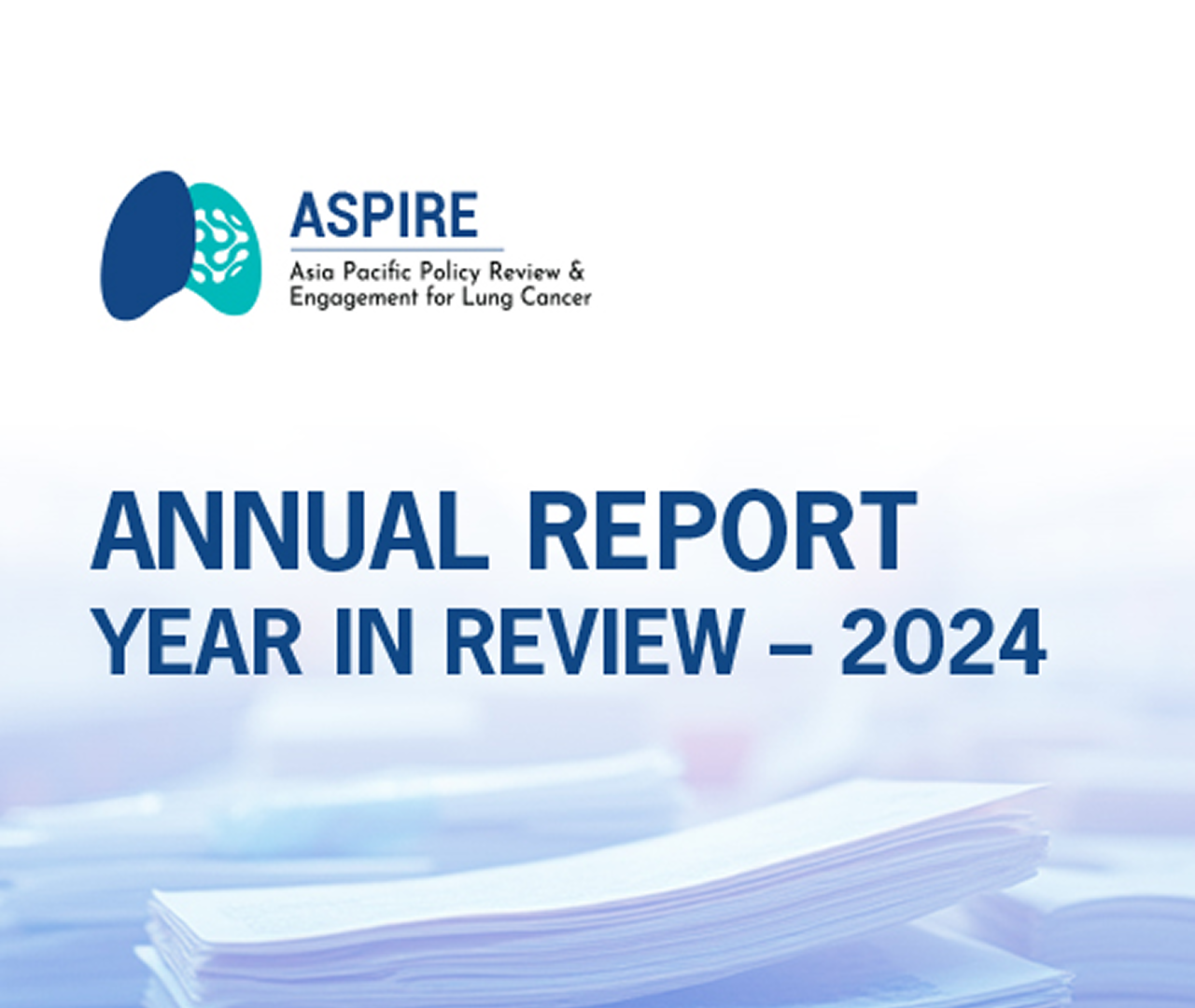
Since its inauguration in Feb 2024, ASPIRE has laid a strong foundation by forging key partnerships and launching strategic initiatives aimed at improving lung cancer care across the APAC region.
We are pleased to share our Annual Report 2024, summarising ASPIRE's key engagements and achievements throughout the year, as well as providing an overview of our current and planned activities for Year 2.
We extend our heartfelt gratitude to our founding members, strategic partners, clinical and research experts, patient groups, and policy stakeholders, whose contributions have been instrumental in shaping our achievements. Your collaborative spirit, expertise and steadfast support have significantly advanced our mission and amplifying our impact on lung cancer across the region.
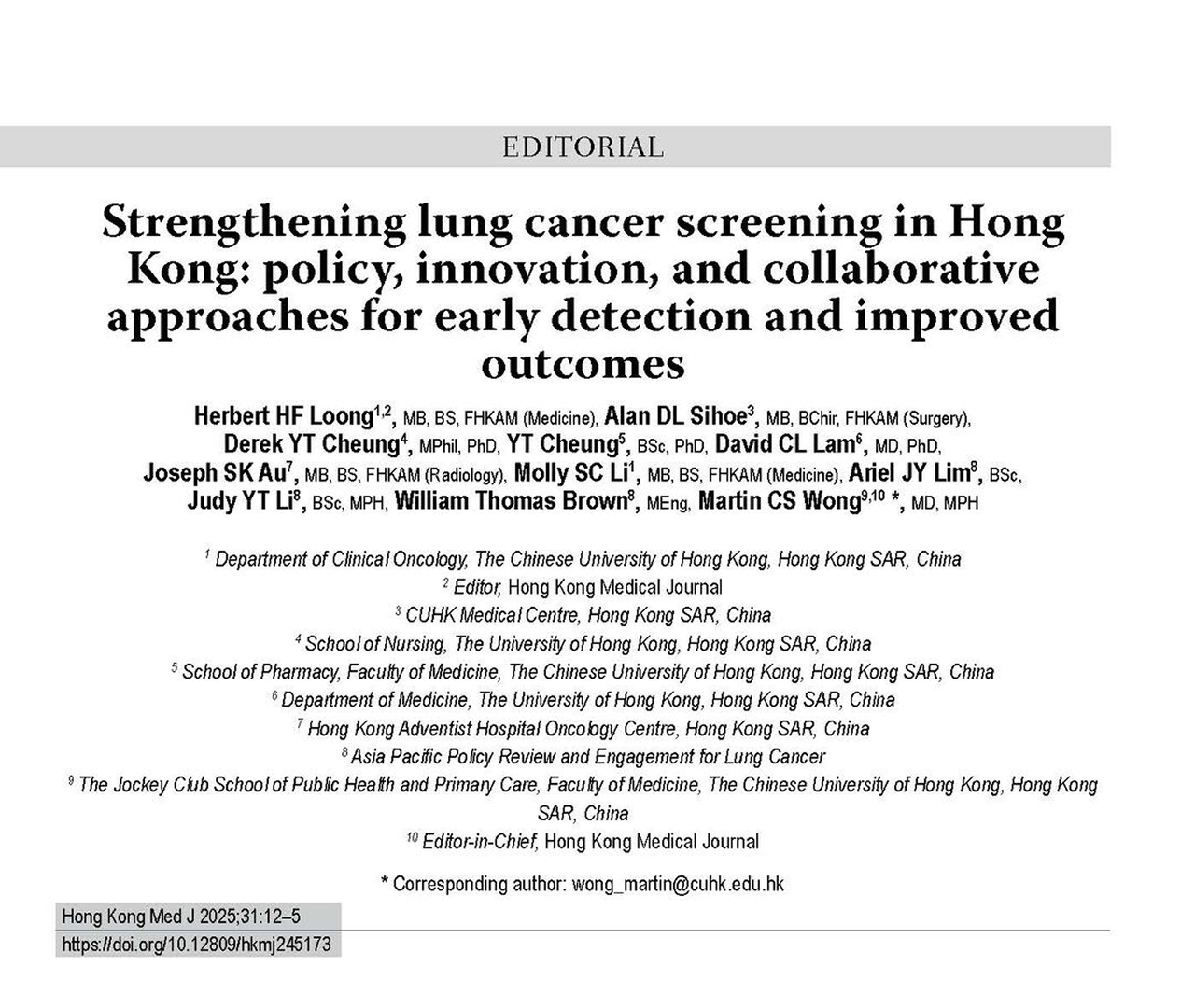
Last September, ASPIRE’s first Hong Kong Lung Cancer Roundtable convened leading experts to shape the future of lung cancer screening in the territory. The insights and recommendations from that discussion have now been published as an editorial in the Hong Kong Medical Journal (HKMJ), an important step in driving ongoing dialogue and action in the territory.
The editorial underscores the need for a structured LCS programme, leveraging low-dose computed tomography (LDCT) screening for high-risk individuals. It also discusses key barriers, including cost-effectiveness considerations, healthcare system integration, and the need for technological advancements such as artificial intelligence to enhance screening accuracy. To maximise impact, the editorial calls for a comprehensive lung cancer control strategy encompassing prevention, screening, treatment, and coordinated care across healthcare settings.
We would like to thank our co-authors, including Prof. Martin Chi-Sang Wong, Assoc. Prof. Herbert Loong, MBBS FRCP FASCO, Dr. Alan Sihoe, Assist. Prof. Derek Cheung, Assoc. Prof. Yin Ting Cheung, Prof. David Lam, Dr. Joseph Siu Kie Au and Assist. Prof. Molly Li for contributing toward this important piece.
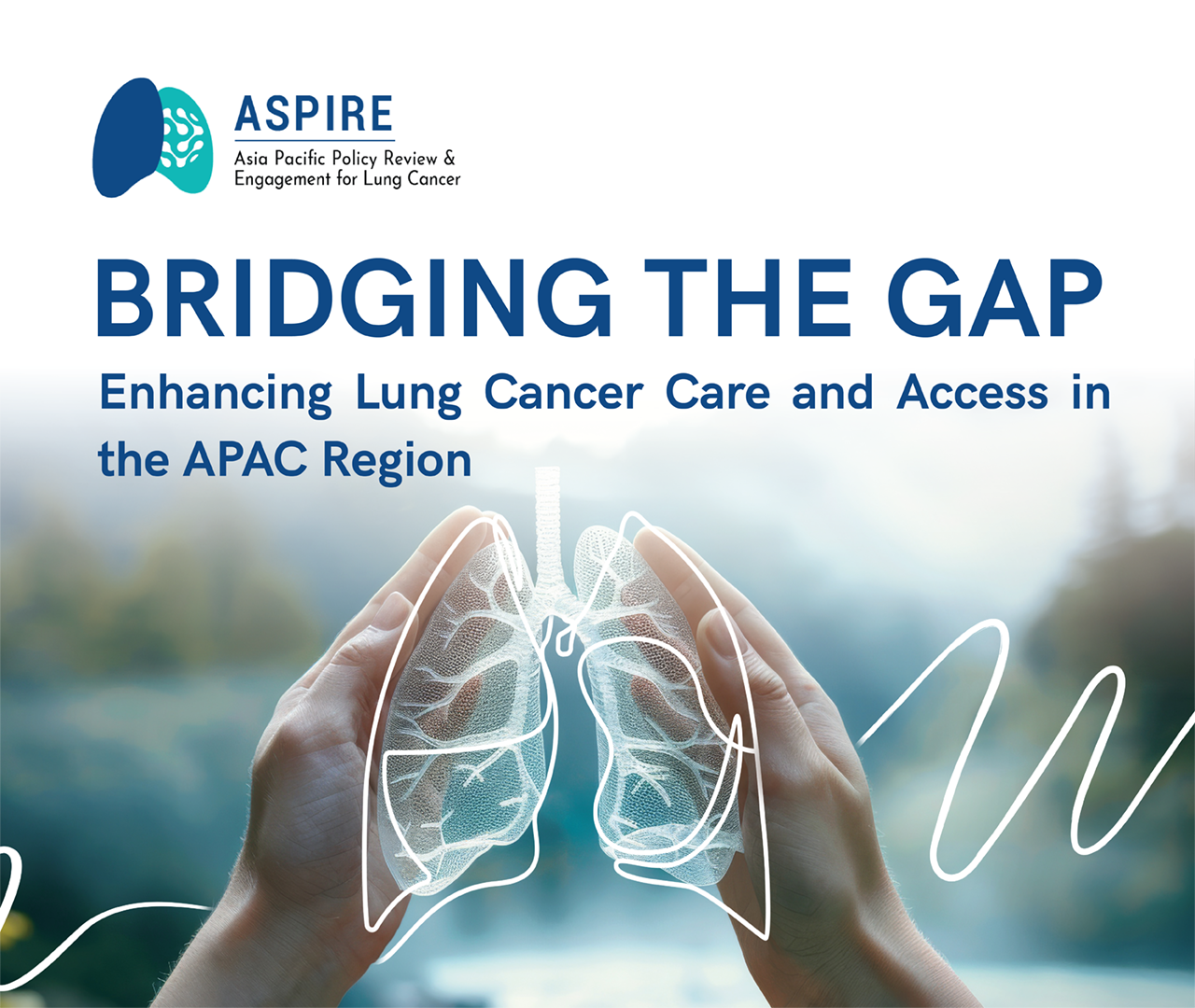
Lung cancer is the leading cause of cancer-related deaths in the Asia-Pacific region, responsible for one in five fatalities and a substantial economic burden. Yet, it often lacks the political priority it deserves, with persistent challenges in accessing quality, timely care and suboptimal patient outcomes.
This flagship White Paper provides a comprehensive analysis of lung cancer care across nine select APAC health systems, offering key recommendations to improve access and quality of care. Developed as an evidence-based resource, it aims to inform relevant stakeholders, foster constructive dialogue, and highlight critical opportunities for meaningful improvement. Every stakeholder in the ecosystem—from Ministries of Health and policymakers, to industry leaders, physicians, caregivers and patients, plays a crucial role in driving change. Together, we can bridge the gap and chart a path towards better lung cancer care and outcomes in the APAC region.
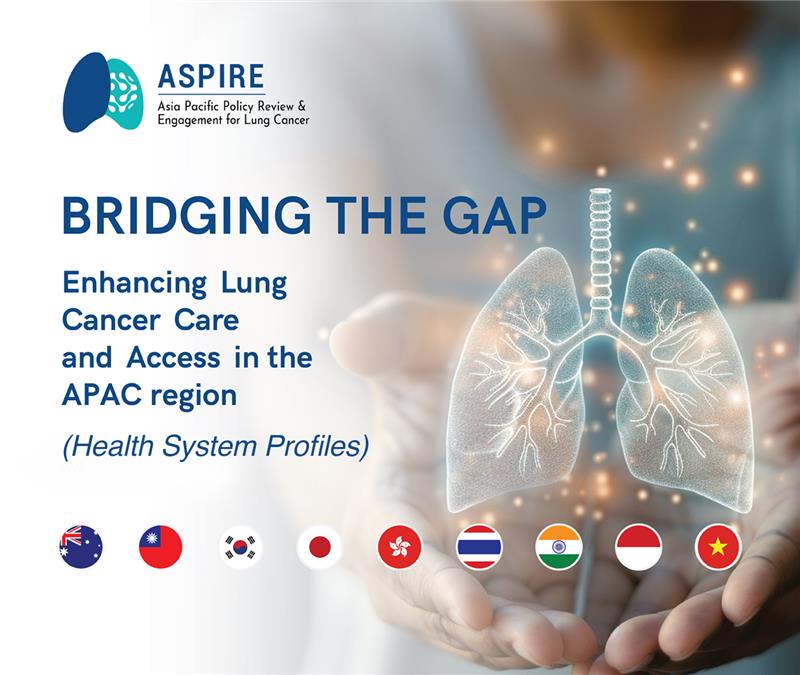
These Health System Profiles complement the White Paper "Bridging the Gap: Enhancing Lung Cancer Care and Access in the APAC Region." A total of 9 profiles are included, each comprising a structured indicator framework that offers a comprehensive assessment of the lung cancer landscape across the care continuum.
Each profile identifies the top three challenges and opportunities for advancing lung cancer care and management and evaluate key indicators across five critical domains:
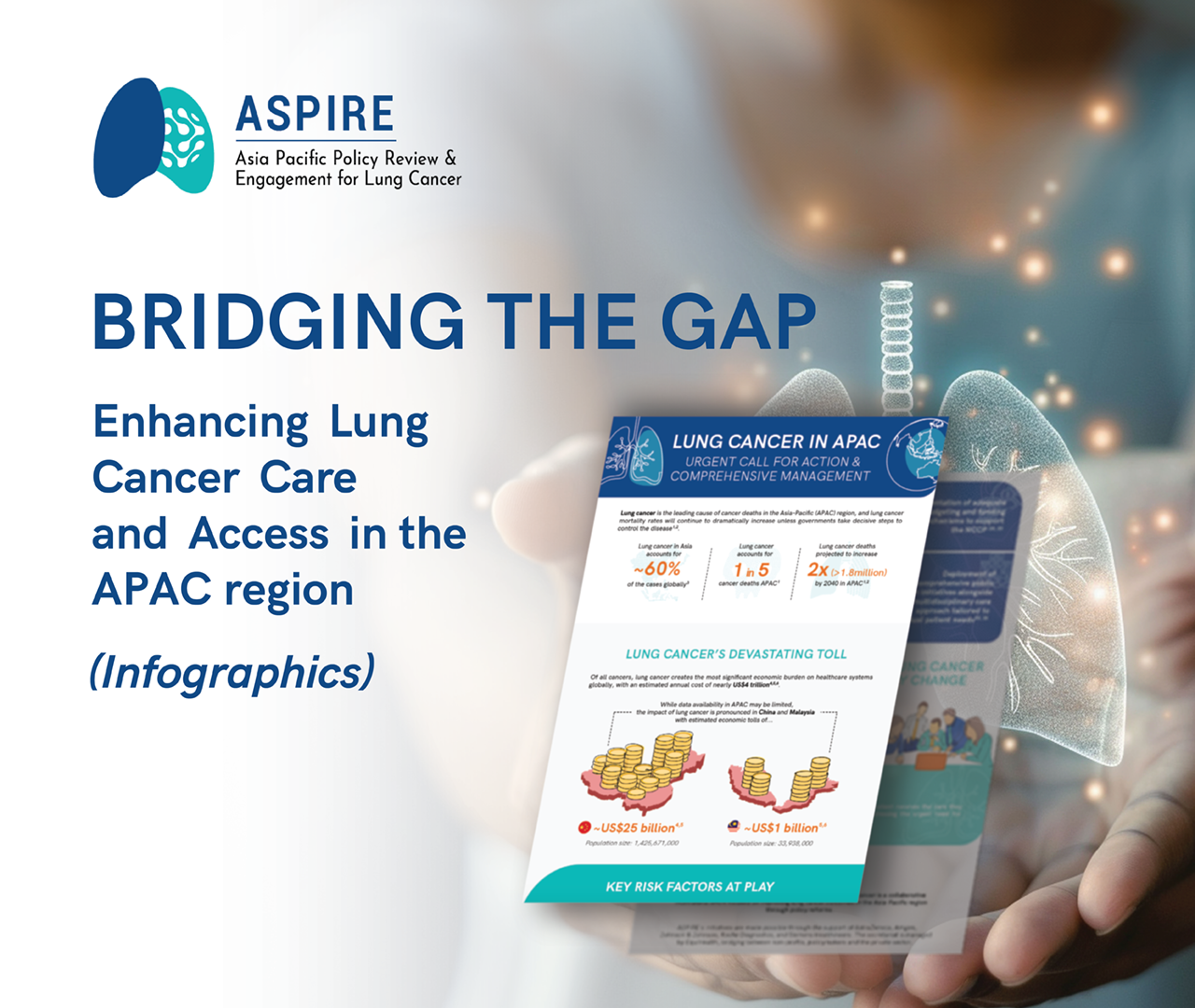
This infographic complements the White Paper by offering a visually engaging resource that highlights key statistics and success factors in addressing the lung cancer burden in the Asia-Pacific region.
It covers a wide range of topics, including critical clinical and economic data, as well as key risk factors, while highlighting unique challenges faced by the APAC region.
Additionally, it illustrates the incremental progress made by health systems such as Japan, South Korea and Taiwan in reducing mortality rates, identifying the key factors that have contributed to their success.
Combined with the White Paper and Health System Profiles, this infographic serves as a valuable engagement tool, effectively conveying critical insights that supports policy and strategic decisions in tackling lung cancer across diverse APAC health systems.